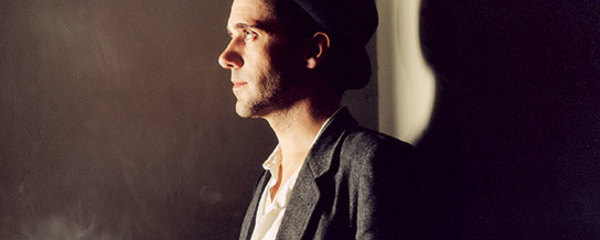Whitey: Causing an Electro-Rock Riot
By his own admission, the electro-rock powerhouse named Nathan J. Whitey is a lazy, alcoholic […]
Whitey: Causing an Electro-Rock Riot
By his own admission, the electro-rock powerhouse named Nathan J. Whitey is a lazy, alcoholic […]

By his own admission, the electro-rock powerhouse named Nathan J. Whitey is a lazy, alcoholic bookworm. “I’ve spent most of my life either drunk or reading, but I learned how to play instruments in between,” he says, before detailing his new regime. “I drank nothing but Jack [Daniels] for years, but I realized it was making me fat and stupid. I’ve switched to vodka and fruit juice now, so I’m constantly hydrating myself and pumping myself full of vitamins while I’m drinking.” He pauses, watching my black Sharpie commit his words indelibly to lined paper. “But don’t make me sound like a health nut.”
No danger there. With nearly two years of touring–and a nigh constant hangover–under his belt, East London-based Whitey is finally living the rock ‘n’ roll dream his tracks promise. Though most of his music–from remixes for Chromeo, Soulwax, and Bloc Party to his April debut, The Light At The End of The Tunnel Is A Train (1234)–was made solo, it has a fuck-off swagger that sounds as if an entire sweaty band is trapped in the room with you. Pairing the metronomic garage rock stomp of the White Stripes or The Hives with electronic touches (a vocoded vocal here, tweaky effects there), Whitey has created the purest definition yet of electro-rock, rendering arguments over the differences between “dance rock” and “rock dance” moot.
“When I was young, I was in really shit guitar bands and then I got disenchanted with that,” says Whitey of the genesis of his sound. Ditching Iggy Pop rip-offs for rave (a word he hates), he had a string of “rubbish” breakbeat hardcore records released between 1990 and 1995, but continued to listen to The Pixies, Mudhoney, and Fugazi. In 1997, he decided to once and for all combine his influences. “There are incredible sonic similarities between rock and electronic music: how they crash and build up again and surge,” he explains. “It seemed perfectly natural to use both.”
Using other people’s studios–often between two and eight in the morning–Whitey crafted his album tracks in one take each. Amazingly, they sound perfectly natural when performed live by his black-clad band, who wail on guitars and drums while Whitey stands in the middle looking like he raided Elvis Costello’s closet: pork pie hat, black suit, and black tie loosened in a louche fashion. Sometimes balls-out, occasionally deadpan, he makes an interesting frontman. “I’m quite honest when I’m on stage,” he states. “If I’m tired/crashing horribly then you’ll see that, and if I’m excited/rising stiffly then it’s different. I like to just gradually get worked up.”

